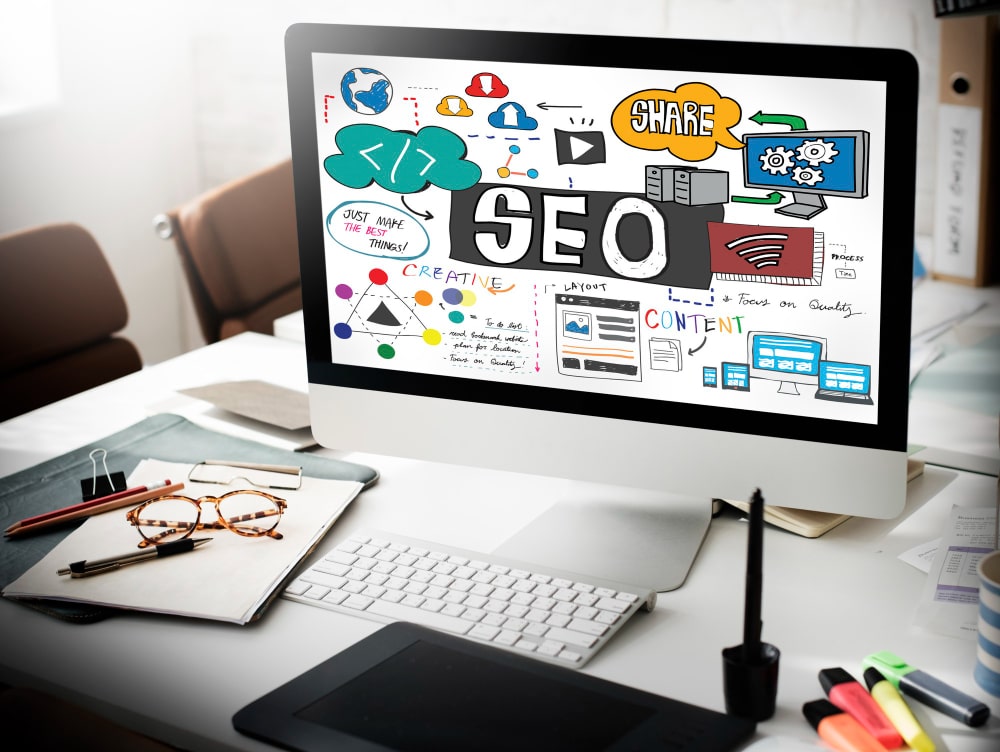In the world of digital marketing, two strategies dominate the landscape when it comes to driving traffic and increasing visibility: Search Engine Optimization (SEO) and Pay-Per-Click (PPC) advertising. While both are designed to increase your website’s visibility on search engines like Google, they each come with their own set of advantages, challenges, and best-use scenarios.
Understanding the differences between SEO and PPC, as well as how they work together, is essential for crafting an effective online marketing strategy. In this article, we will break down what SEO and PPC are, compare their pros and cons, and help you determine which strategy is best suited for your business based on your goals, budget, and timeline.
What is SEO?
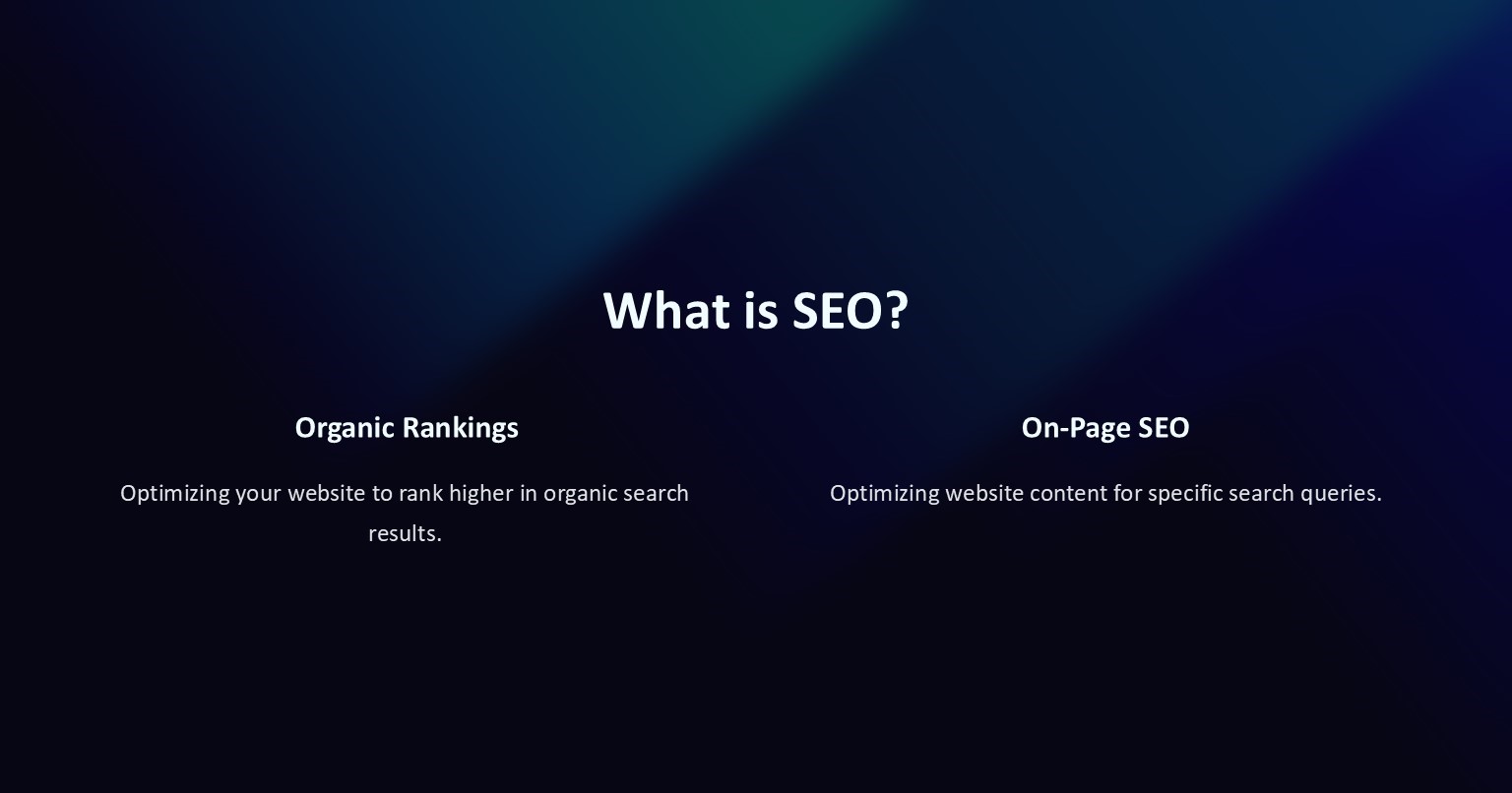
SEO, or Search Engine Optimization, is the process of optimizing your website to rank higher in organic search results. These rankings are determined by search engines like Google, which use complex algorithms to decide which pages are the most relevant for a given search query.
SEO involves multiple strategies, including:
- On-page SEO: Optimizing the content on your website (such as titles, meta descriptions, and content) to be more relevant to specific search queries.
- Off-page SEO: Building authority through backlinks and social signals, which can improve your site’s credibility in the eyes of search engines.
- Technical SEO: Improving website infrastructure, including page speed, mobile responsiveness, and site architecture, to ensure search engines can crawl and index your site efficiently.
SEO requires patience, as it can take time for changes to show up in search engine results. However, once you reach the first page of search results, the traffic can continue to flow in without any direct ongoing costs.
According to webfx reports:
The return on investment for SEO will continue to climb long after PPC has peaked. That means your site will continue attracting customers indefinitely.
What is PPC?
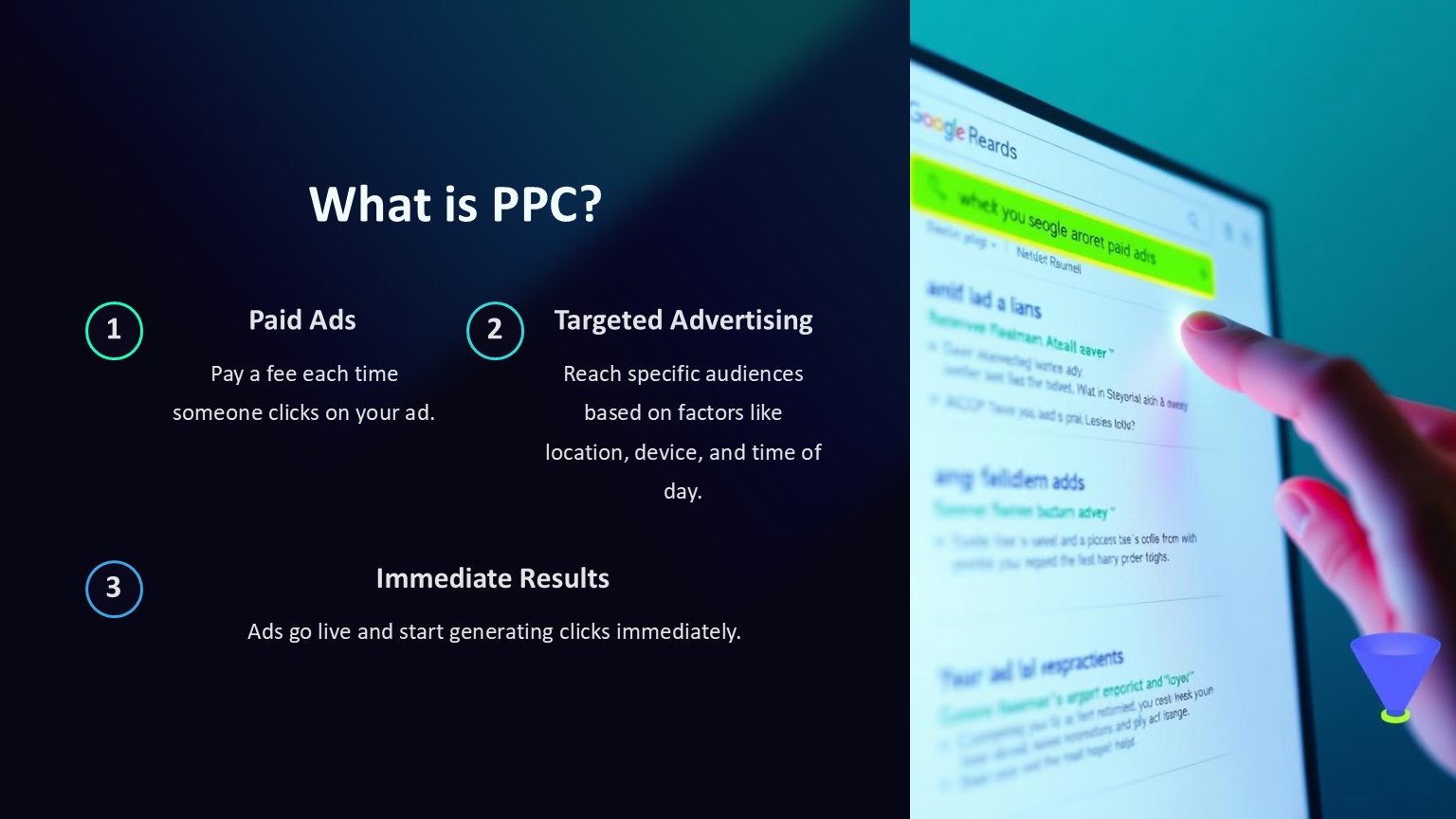
PPC, or Pay-Per-Click, is a form of online advertising where you pay a fee each time someone clicks on one of your ads. The most common platform for PPC is Google Ads, but you can also run PPC campaigns on platforms like Facebook, LinkedIn, and Bing.
In PPC, you create ads that appear at the top of search results (or other locations depending on the platform) when certain keywords are searched. The amount you pay per click is determined by a bidding system, where you and other advertisers bid on keywords. The more competitive a keyword is, the higher the cost per click (CPC).
PPC campaigns can be highly targeted, allowing you to reach specific audiences based on factors like location, device, time of day, and more. The results from PPC campaigns are immediate, and you can quickly see how your ads are performing, allowing for rapid adjustments and optimizations.
SEO vs. PPC: The Key Differences
To understand which strategy is right for your business, it’s crucial to compare the two approaches. Let’s look at the key differences between SEO and PPC:
1. Cost
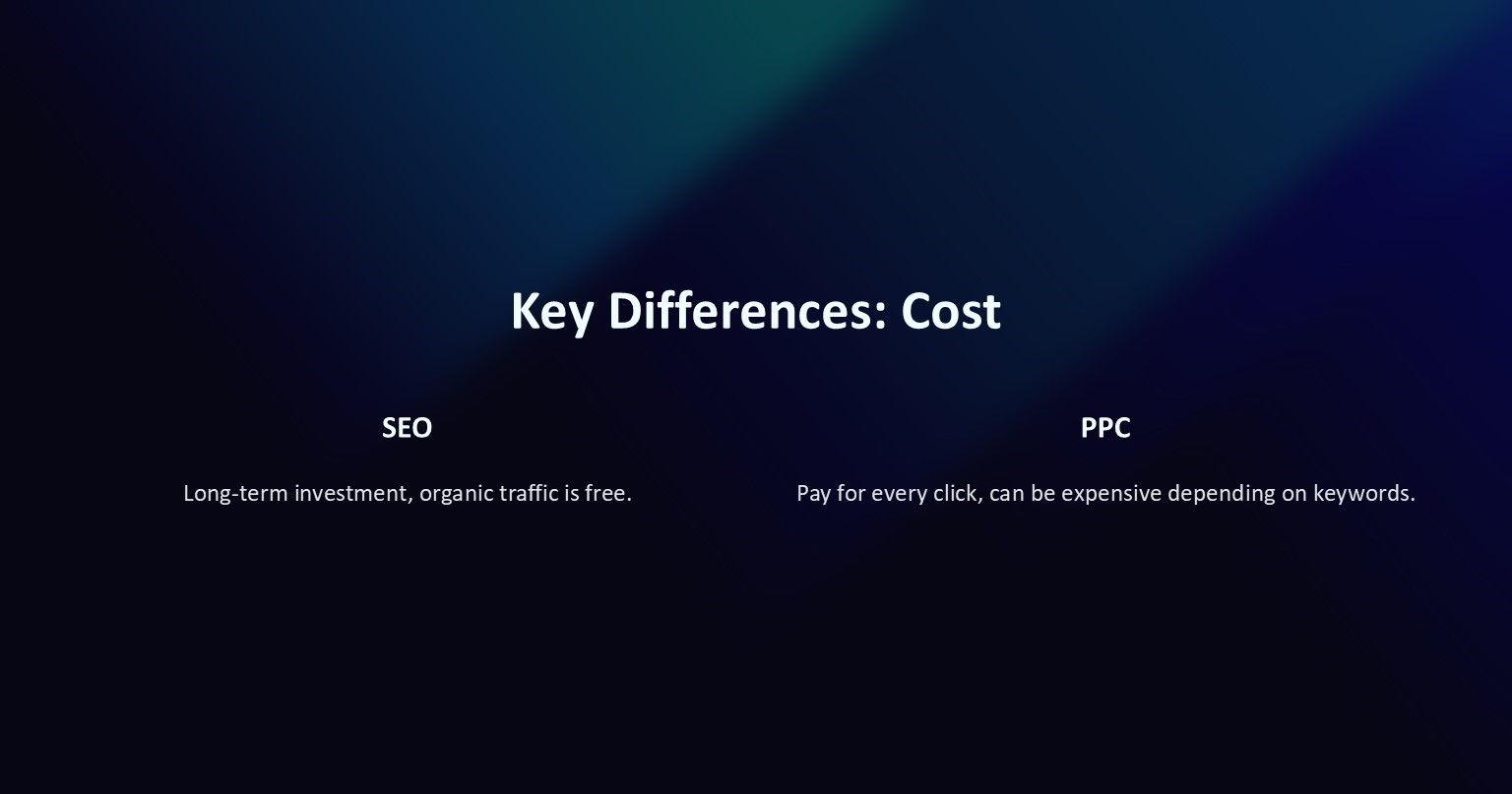
- SEO: SEO is often considered a long-term investment. While there are costs associated with hiring an SEO expert, creating content, and improving website performance, the organic traffic generated by SEO efforts is free. Once your site ranks well, you don’t pay for each visit.
- PPC: With PPC, you pay for every click on your ad, which can add up quickly depending on how competitive the keywords are. While it offers instant visibility, it can be a high-cost strategy, especially in competitive industries.
2. Time to See Results
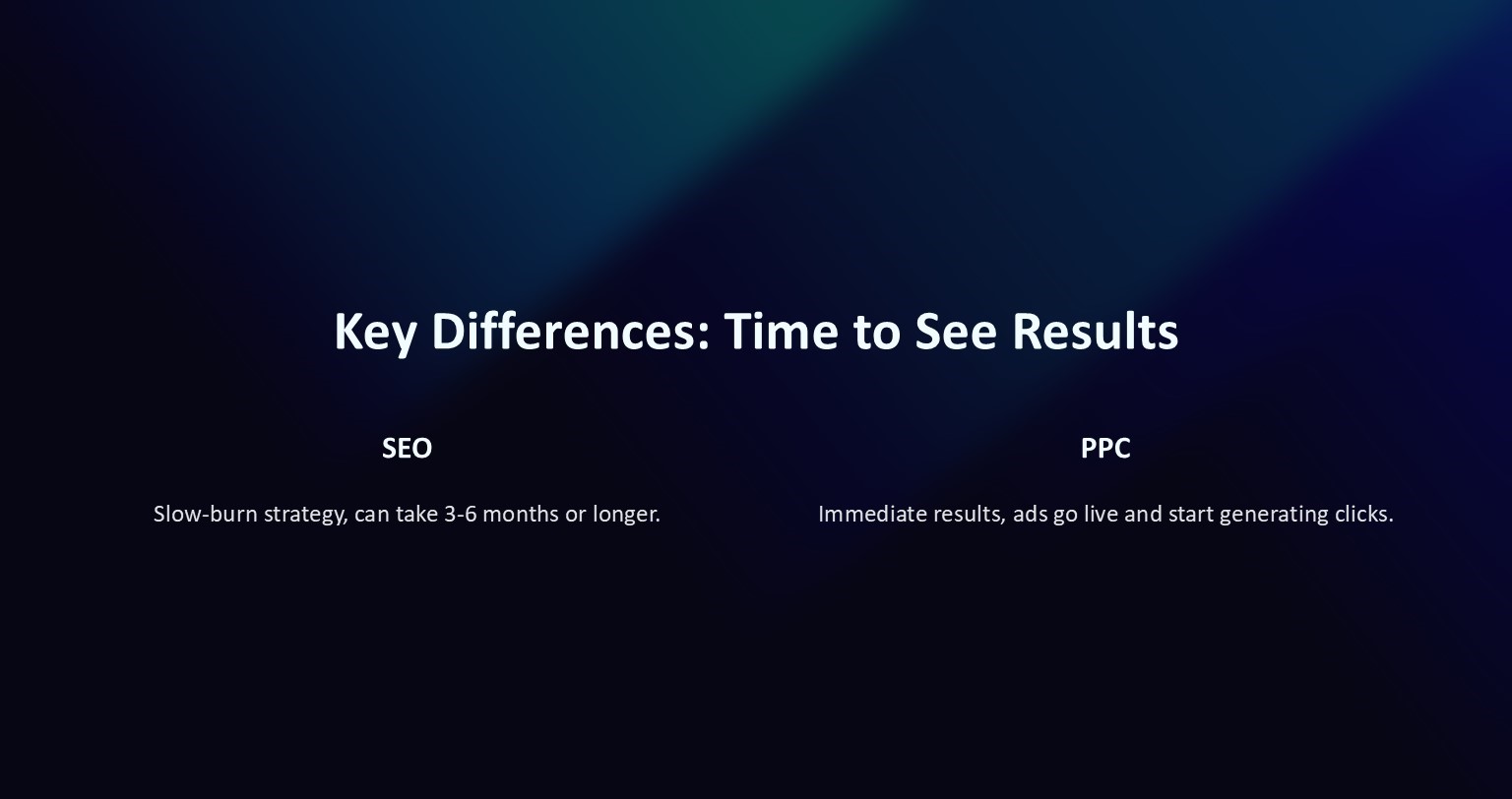
- SEO: SEO is a slow-burn strategy. It can take anywhere from 3 to 6 months—or longer—to see significant results, depending on your industry, competition, and SEO efforts. However, the results are more sustainable over time.
- PPC: PPC delivers immediate results. As soon as your ads go live, they start appearing in search results and generating clicks. This is ideal if you need traffic quickly, such as for a product launch or promotional campaign.
3. Sustainability and Longevity
- SEO: SEO is a sustainable strategy. Once you reach a good ranking, you can maintain it for a long time with relatively little ongoing investment. However, you will need to periodically update your content and optimize your site to stay ahead of competitors.
- PPC: PPC traffic stops as soon as you stop paying. This makes PPC a short-term solution, which can be a drawback if you’re looking for long-term growth without continuous expenditure.
4. Targeting and Reach
- SEO: SEO allows you to rank for a wide range of keywords over time, but it’s often more difficult to target highly specific or niche audiences. SEO is more about broad visibility for relevant search terms.
- PPC: PPC allows for highly targeted advertising. You can reach specific demographics, locations, and interests, making it great for highly specialized products or services. With PPC, you can target exactly the people who are most likely to convert.
5. Brand Credibility and Trust
- SEO: Websites that appear in organic search results tend to be trusted more by users. Organic results are perceived as more credible because they are based on merit and relevance rather than paid ads.
- PPC: While PPC ads can generate traffic quickly, they often don’t carry the same level of trust as organic results. However, some users are comfortable with ads and may click on them if the ad copy and landing page are relevant to their needs.
When to Use SEO ?
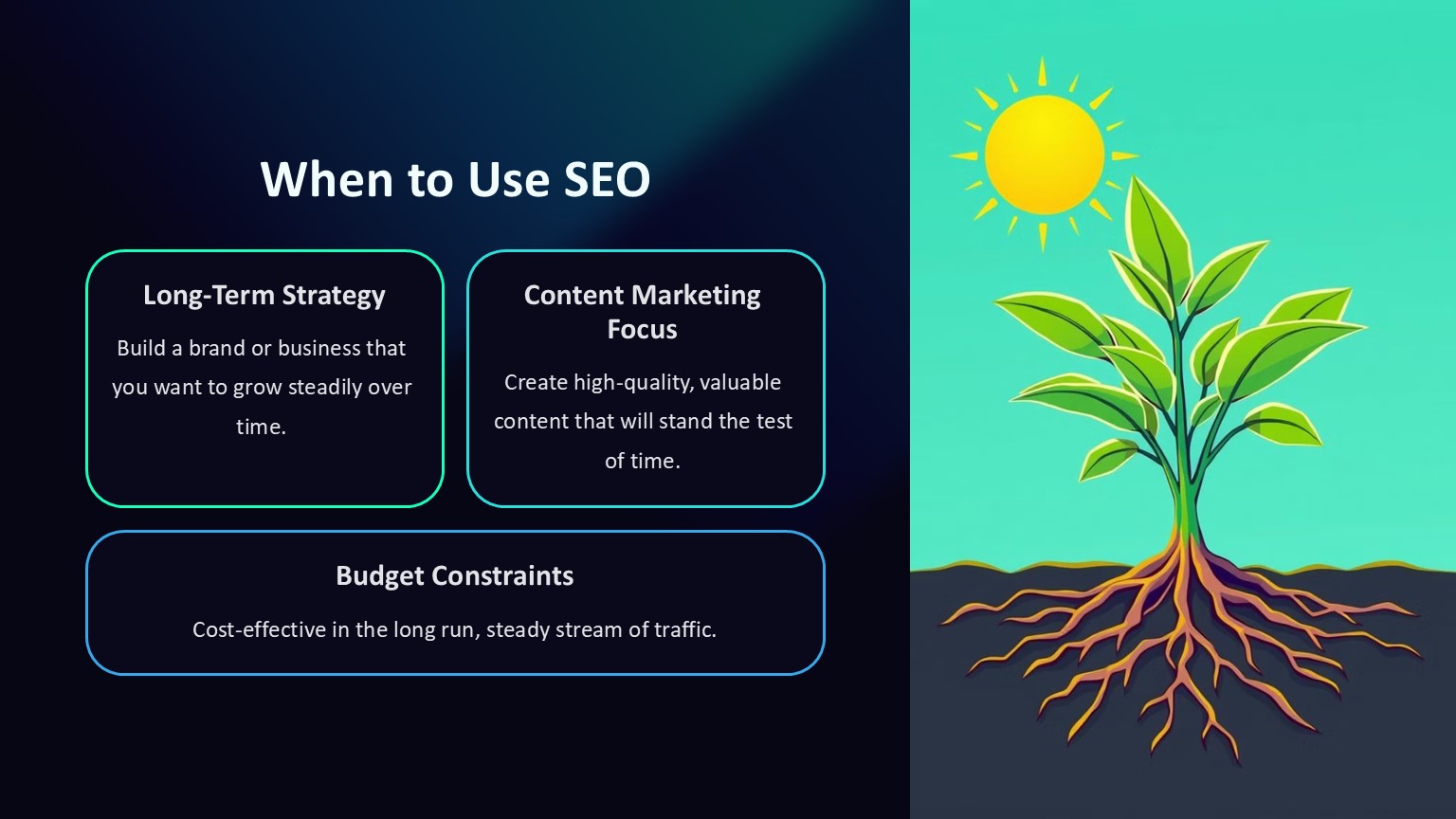
SEO is ideal for businesses that want to build long-term, sustainable visibility. Here are some scenarios where SEO is the best strategy:
- Long-Term Strategy: If you’re building a brand or business that you want to grow steadily over time, SEO is the best choice. It takes time to implement, but the rewards can be significant in the long run.
- Content Marketing Focus: If you have a blog or are focusing on creating high-quality, valuable content that will stand the test of time, SEO is the way to go. Content that is optimized for SEO can generate traffic for years to come.
- Budget Constraints: SEO is generally more cost-effective in the long run. If you don’t have a big advertising budget but want a steady stream of traffic, SEO is the better option.
- Targeting Long-Tail Keywords: If you’re targeting niche audiences or long-tail keywords (search queries with three or more words), SEO can be more effective in reaching those users without the high cost of PPC.
- Building Brand Authority: If your goal is to establish your website as an authority in your field, SEO is an essential strategy. A high-ranking website is often seen as a credible and trustworthy source.
When to Use PPC ?
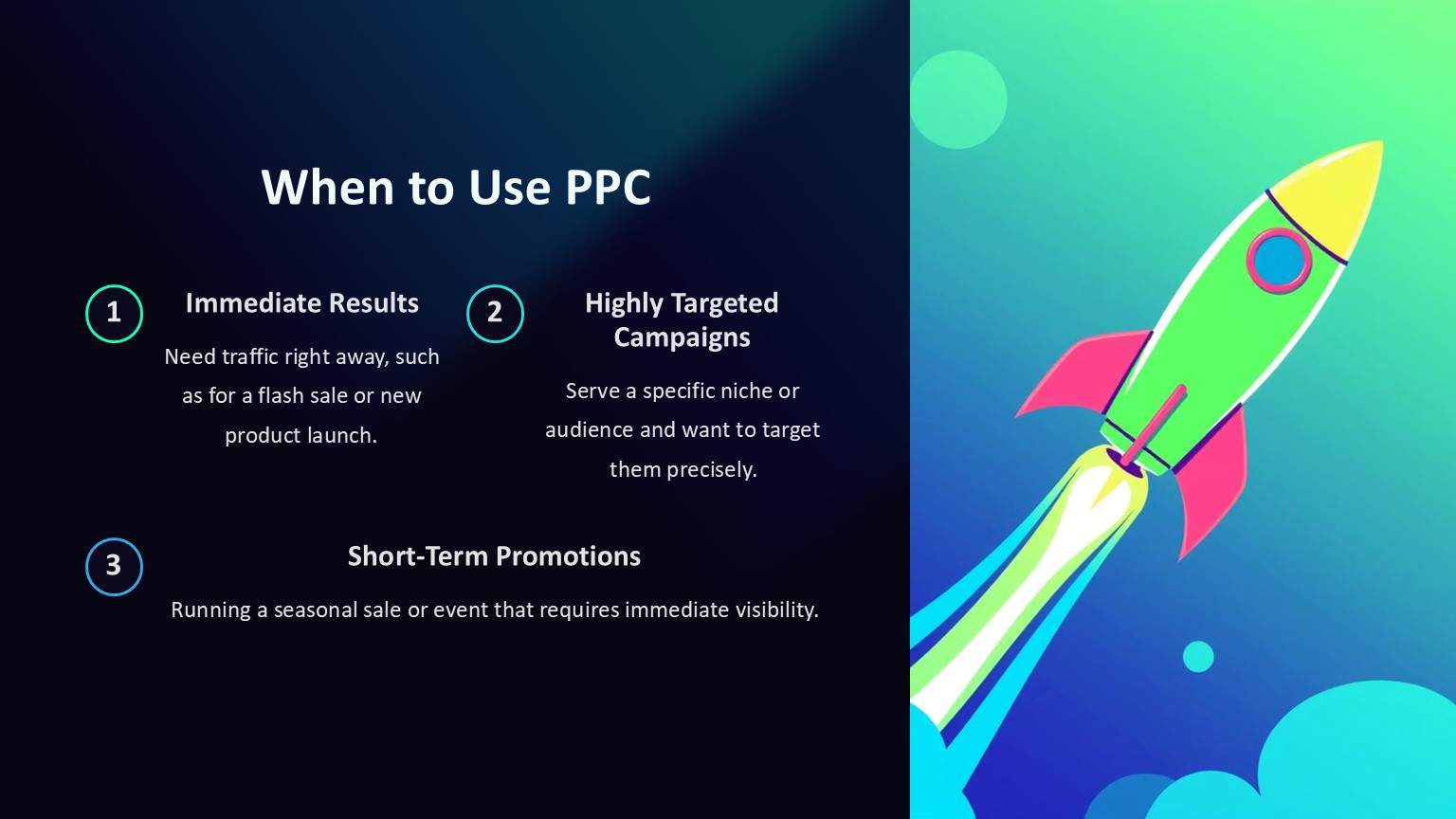
PPC is ideal when you need immediate traffic, want to target specific demographics, or have a limited window for a campaign. Here are some scenarios where PPC shines:
- Immediate Results: If you need traffic right away—such as for a flash sale, limited-time offer, or new product launch—PPC is the best way to generate immediate results.
- Highly Targeted Campaigns: If your business serves a specific niche or audience and you want to target them precisely, PPC is a great choice. You can target by location, device, time of day, and more.
- Short-Term Promotions: If you’re running a seasonal sale or event that requires immediate visibility, PPC can provide the necessary exposure without the long wait associated with SEO.
- Testing New Markets: PPC allows you to experiment with different keywords, ad copy, and target audiences. If you’re testing a new product, service, or market, PPC can provide quick feedback on what works and what doesn’t.
- Competitive Industries: In highly competitive industries where ranking organically is difficult, PPC can give you immediate visibility at the top of search results, driving traffic while you work on your SEO efforts.
How SEO and PPC Work Together ?
While SEO and PPC may seem like competing strategies, they can actually complement each other when used together. Here’s how:
- Data Sharing: The data from your PPC campaigns (such as which keywords convert the best) can inform your SEO strategy. For example, if certain PPC keywords are performing well, you can optimize your website content for those keywords to improve organic rankings.
- Increased Visibility: Running both SEO and PPC together can increase your visibility on search engines, dominating both organic and paid search results. This reinforces your brand and makes you more visible to users.
- Keyword Testing: PPC allows you to test which keywords drive the most traffic and conversions. This data can help guide your SEO strategy by focusing on high-converting keywords.
Making the Right Choice for Your Business
Ultimately, the decision between SEO and PPC depends on your business goals, budget, and timeline. Here are some considerations to help you choose:
- Budget: If you have a limited budget, SEO may be the more cost-effective choice for long-term growth. However, if you have a larger budget and need immediate results, PPC may be more appropriate.
- Goals: If you’re aiming for long-term, sustainable visibility, SEO is the way to go. If you need quick results for a campaign or promotion, PPC is ideal.
- Industry Competition: If you’re in a highly competitive market, SEO can be a longer path to success, and PPC can provide immediate visibility. Over time, you can work to improve your SEO rankings while running PPC campaigns for additional traffic.
- Timeline: If your goal is to get traffic fast, PPC is the clear winner. SEO, on the other hand, is better suited for businesses with a longer time horizon.
Conclusion
Both SEO and PPC have their place in a comprehensive digital marketing strategy. The choice between SEO vs. PPC largely depends on your business’s goals, timeline, and budget. SEO is ideal for businesses looking for sustainable, long-term growth, while PPC is best suited for quick, highly targeted results. In many cases, combining both strategies can provide the best of both worlds, giving your business the opportunity to grow organically while also capitalizing on paid search opportunities.
By understanding the strengths of both SEO and PPC, you can make informed decisions and choose the right strategy—or combination of strategies—that aligns with your business’s needs and objectives. Whether you’re aiming to rank in the organic search results, or you need to jump to the top of search with paid ads, mastering both strategies will help you dominate the digital landscape in 2024 and beyond.
Frequently Asked Questions
1- What is the main difference between SEO and PPC?
The main difference lies in how traffic is generated. SEO involves optimizing your website to rank organically on search engines, while PPC involves paying for ad placements, with you paying each time someone clicks on your ad. SEO is a long-term strategy, while PPC offers immediate results.
2- Which one is cheaper: SEO or PPC?
SEO is typically more cost-effective in the long run because it doesn’t require direct payments per click. However, SEO requires investment in time and resources (like content creation and link building). PPC, on the other hand, can be expensive depending on the competitiveness of your industry and the keywords you bid on. For ongoing traffic, SEO usually has a lower cost per visitor.
3- How long does it take to see results from SEO?
SEO is a long-term strategy and it can take anywhere from 3 to 6 months—or even longer—to see significant results. However, once you start ranking high, the benefits can continue over time with less ongoing cost.
4- How quickly will I see results from PPC?
The beauty of PPC is that you’ll see immediate results once your campaign is live. You can start generating traffic and conversions right away. However, the traffic stops as soon as you stop paying for the ads.
5- Can SEO and PPC work together?
Yes, SEO and PPC can complement each other. Using both strategies can increase visibility, drive more targeted traffic, and enhance brand awareness. For example, data from PPC campaigns can inform SEO strategies by revealing which keywords perform well.

